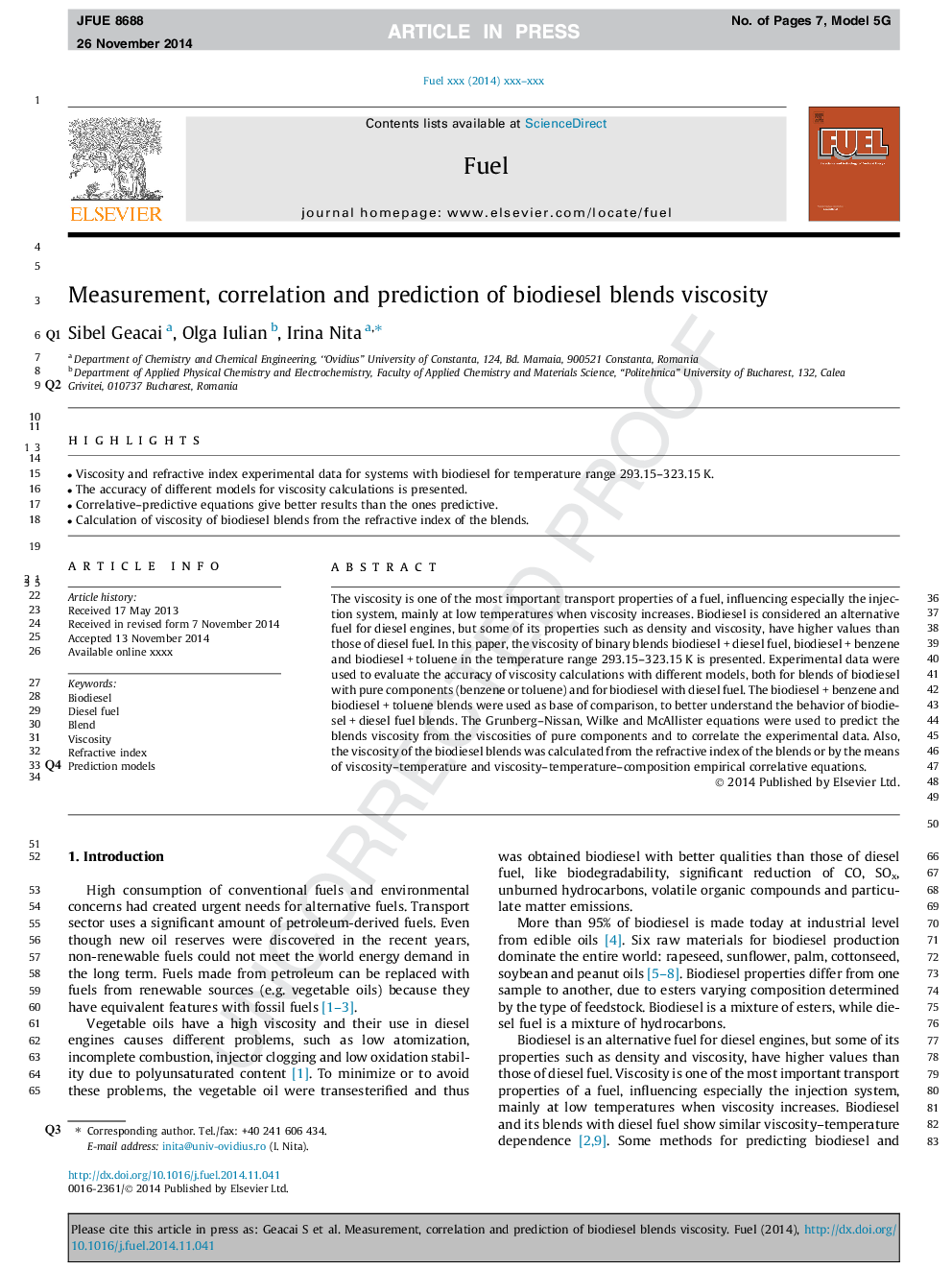| Article ID | Journal | Published Year | Pages | File Type |
|---|---|---|---|---|
| 6635834 | Fuel | 2015 | 7 Pages |
Abstract
The viscosity is one of the most important transport properties of a fuel, influencing especially the injection system, mainly at low temperatures when viscosity increases. Biodiesel is considered an alternative fuel for diesel engines, but some of its properties such as density and viscosity, have higher values than those of diesel fuel. In this paper, the viscosity of binary blends biodiesel + diesel fuel, biodiesel + benzene and biodiesel + toluene in the temperature range 293.15-323.15 K is presented. Experimental data were used to evaluate the accuracy of viscosity calculations with different models, both for blends of biodiesel with pure components (benzene or toluene) and for biodiesel with diesel fuel. The biodiesel + benzene and biodiesel + toluene blends were used as base of comparison, to better understand the behavior of biodiesel + diesel fuel blends. The Grunberg-Nissan, Wilke and McAllister equations were used to predict the blends viscosity from the viscosities of pure components and to correlate the experimental data. Also, the viscosity of the biodiesel blends was calculated from the refractive index of the blends or by the means of viscosity-temperature and viscosity-temperature-composition empirical correlative equations.
Related Topics
Physical Sciences and Engineering
Chemical Engineering
Chemical Engineering (General)
Authors
Sibel Geacai, Olga Iulian, Irina Nita,
